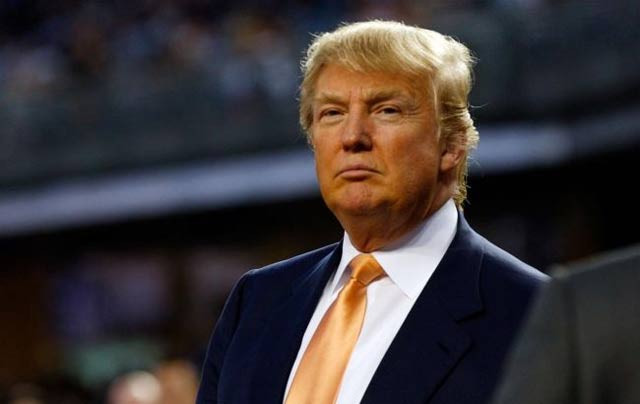Trump’s exit strategy from Afghanistan
Graceful US exit from the region with some credibility intact might be the only definition of success

US President Donald Trump. PHOTO: REUTERS
First, it depoliticises the military campaign in Afghanistan, which was much needed. For long, the US military campaigns in Afghanistan and Iraq have been dictated and influenced by the politics and political timelines in Washington. Under the Obama administration, the US military campaign in Afghanistan faced a major blow due to the ‘time line’ attached by the White House. Similarly, the pre-mature withdrawal from Iraq in 2011 compelled by the ‘political promises’ led to a disaster that the US and the Middle East is going to take decades to recover from.
Hence, by not announcing any timeline or specific number of troops and giving the operational power back to the commanders on ground, President Trump has taken a step in the right direction. This will also help the US regain its credibility in the region and with its partners, which is my second point.
In the past couple of years, Washington has drastically lost its credibility in the region. Its two major allies in the Afghan war, the National Army of Afghanistan and the Pakistan military, both began to perceive the US as having neither the political will, nor the capacity to provide a solution in Afghanistan. The basis of this sentiment was the US military campaign becoming hostage to politics in Washington. Both Afghanistan and Pakistan looked elsewhere to China and even Russia to play an active role in Afghan peace.
With President Trump depoliticising the military campaign and showing seriousness to the cause, both the Pakistan Army and the Afghanistan National Army may have an interest to engage in a meaningful way with the US forces on ground in the region.
Third, and very important, is the shift away from the state-building agenda. While, this has invited criticism for the liberal political sections of the US, the shift was desperately needed. Since 9/11 and the rise of terrorism, the US foreign and security policies have integrated security and development to achieve stability in conflict zones. Such a policy not only ‘securitised’ the development process but also ‘developmentalised’ the security. Today, we have US military forces building schools and delivering development aid projects in Afghanistan — a job that is not what they are sent for.
The problem with this approach has been that the focus shifts away from neutralising the threat to getting into a larger project of state-building, which may take an eternity.

Beyond the unlimited time it requires, state building and forcing democracies in overseas countries have had a disastrous effect. Not only it gives the US an imperial overtone, but also creates more enemies and promotes insecurity. Essentially, President Trump taking a step back from the state-building agenda to focus narrowly on neutralising the security threat may serve to be an exit point for the US from the Afghan theatre.
Trump’s new approach is, however, problematic on some accounts. For one it will antagonise both India and Pakistan — key regional players in the region. Trump singling out Pakistan to ‘do more’ and giving a large role to India in Afghanistan has naturally ticked off Islamabad that will move closer to China.
The bigger problem is that the ‘blame Pakistan’ approach has been central to almost all the previous US presidents. It hasn’t worked to change Pakistan’s behaviour before, and it is unlikely to change it now. Perhaps it is time to accept that Pakistan cannot help ‘win’ or ‘lose’ the war in Afghanistan and move on to the factors that actually can change the ground calculus.
At the same time, pushing India to ‘do more’ will also not go down well with the Indian establishment that likes its independence more than anything. By involving India in Afghanistan, the US risks securitising its own relations with India that may in the long run prove to be counterproductive. It won’t help the US to have relations with India pivoted around Afghanistan.
Whether Trump’s new approach will work or not depends mostly on how it is played at the operational and tactical level to achieve stability for the US and the region at large, but one thing is for certain: trying the same thing over and again expecting a different result is unlikely to get the US anywhere.
Published in The Express Tribune, September 7th, 2017.
Like Opinion & Editorial on Facebook, follow @ETOpEd on Twitter to receive all updates on all our daily pieces.
















COMMENTS
Comments are moderated and generally will be posted if they are on-topic and not abusive.
For more information, please see our Comments FAQ